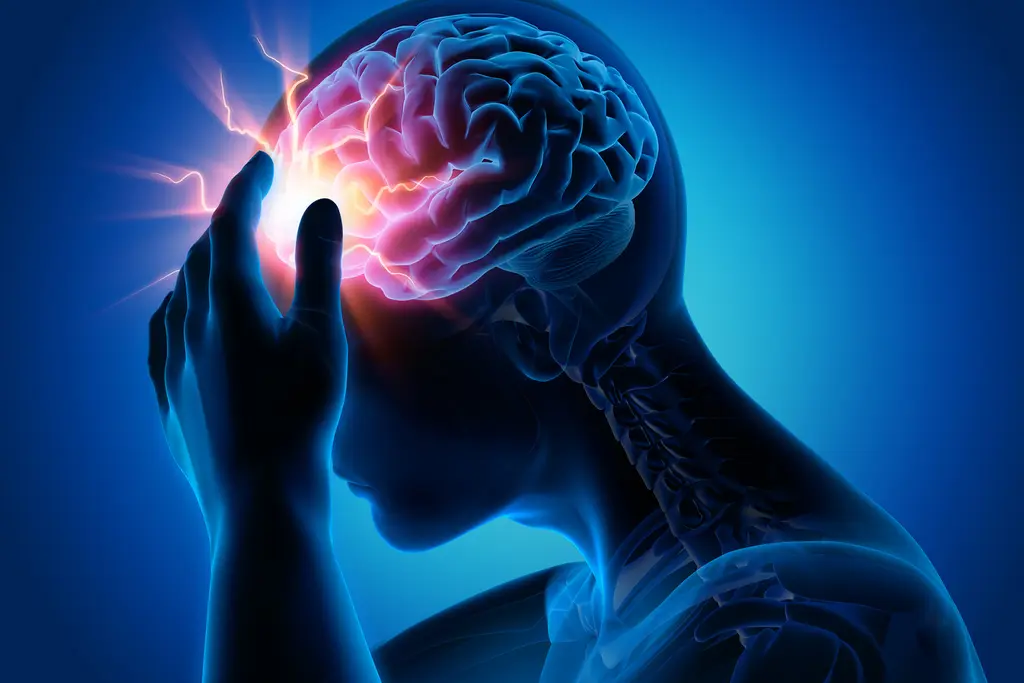
Medications called antidepressants help many people who have depression. But these meds fall short for a lot of folks, too. At least 30% to 70% of people who try two or more antidepressant drugs continue to have mild to serious symptoms. That’s called treatment-resistant depression.
Researchers still aren’t sure what causes treatment-resistant depression. But there are some things that may put you at greater risk.
Giving Up on Treatment Too Soon
Treatment-resistant depression is when you try at least two antidepressant drugs and neither improves your symptoms enough. But a true “drug trial” means you take your medicine every day for at least 4 to 6 weeks. For some people, it takes 8 weeks or longer to notice the full effectiveness.
If, after you’ve given it sufficient time and dose, your medication still isn’t helping, your doctor will try a different one. You’ll probably get a drug from a different class than the first one you tried. For instance, you may try a selective serotonin reuptake inhibitor (SSRI) like fluoxetine (Prozac) before switching to a serotonin-norepinephrine reuptake inhibitor (SNRI) like venlafaxine (Effexor) or duloxetine (Cymbalta).
You could very well get benefits from a different drug. In fact, some experts avoid the term “treatment-resistant depression” in favor of “difficult-to-treat depression” instead. They don’t want to use the term “resistant” because even if medication hasn’t worked for you so far, there’s a good chance you’ll respond to other treatments. You may just need to try several options.
Though you’ll need to give each medication 4 to 8 weeks to work, you should tell your doctor if your depression doesn’t budge at all within the first couple of weeks. They may want to raise your dose before switching you to another med.
Your Type of Depression
Standard antidepressants may not work as well for you if your depression symptoms started before you turned 18. It’s not that antidepressants as a rule don’t help people under 18. It’s that when researchers study people who eventually get treatment-resistant depression, they find that many had their first symptoms of depression at an early age.
Treatment-resistant depression is also more likely to happen to people who have dysthymia. That’s a type of mild depression that lingers for months or years.
Depression is also harder to manage in folks who have:
- More than one major depressive episode
- Chronic symptoms that last for 6 months or longer
- Serious symptoms, such as thoughts of suicide and hopelessness
- Multiple in-hospital treatments for depression
Treatment-resistant depression is also linked to certain types of symptoms, such as:
- Trouble focusing or thinking clearly
- Slow movement
- Insomnia
- Lack of pleasure in activities you once enjoyed
As you and your doctor try to find the best medication, make sure to describe all of your symptoms. Call 911 or get medical help right away if you think you might hurt yourself or someone else. You can also call or text the Suicide & Crisis Lifeline at 988, where someone will be there to talk 24/7.
Other Mood Disorders
Your odds of treatment-resistant depression go up if you have depression along with another mental health condition, such as:
- Anxiety disorder
- Panic disorder
- Social phobia
- Personality disorders
- Posttraumatic stress disorder (PTSD)
Your doctor should rule out any hidden mental health conditions. For example, bipolar disorder shares symptoms with depression but typically doesn’t respond to standard antidepressants. If you have undiagnosed bipolar disorder, you could get misdiagnosed with treatment-resistant depression.
Physical Health Conditions
In general, you’re more likely to have treatment-resistant depression if you have other medical conditions. There’s growing evidence that diseases that cause high levels of inflammation may worsen depression or blunt the effects of antidepressants.
Some medical conditions that might make depression harder to treat include:
- Heart disease
- Underactive thyroid
- Chronic pain
- Cancer
- Diabetes
Your depression symptoms may also stick around if you have:
- Obesity
- Multiple sclerosis or other autoimmune conditions
- Sleep problems
- A viral infection
- Vitamin deficiencies
Neurological illnesses that may play a role in difficult-to-treat depression include:
- Parkinson’s disease
- Dementia
- Schizophrenia
Work with your doctor to find and treat any other health problems you have. You may need a physical exam, cognitive tests, or bloodwork to find out what else is going on. You’ll also need to keep any follow-up appointments to make sure your medical conditions are well controlled.
Childhood Trauma and Stressful Life Events
Your overall chances of depression go up if you had numerous traumatic childhood experiences. Childhood trauma can also make you more sensitive to stress down the road. And when you go through lots of big stressors as an adult, your antidepressant may not be able to compensate.
Childhood traumas include anything that seriously hurt you or made you feel unsafe as a kid. Some examples include:
- Physical, emotional, or sexual abuse
- Bullying
- Having a parent with a mental health disorder
- Being in a serious accident
- Having a life-threatening illness
People with treatment-resistant depression also tend to report more stressful life events in their adult lives than those who don’t have this type of depression. That might include experiences such as:
- Moving to a different place
- Death or divorce
- Relationship conflicts
- Ongoing parent-child trouble
- Losing a job
- Financial problems
You can’t get rid of stress entirely, but there are ways to manage it. You may be able to calm your body and mind with healthy lifestyle changes, cognitive behavioral therapy, or relaxation techniques like mindfulness or deep breathing. Ask your doctor or a therapist for help.
Substance Use Disorders
Studies show that people who have treatment-resistant depression are more likely to have a substance use disorder than those whose depression is easier to treat. For reasons that aren’t clear, experts also know that antidepressants generally don’t work as well for people who have a substance use disorder.
Be honest with your doctor if you can’t stop using alcohol or drugs. There are ways to treat depression and substance use problems at the same time. In addition to antidepressants, you might benefit from other recovery medication, cognitive behavior therapy, or other kinds of therapy.
Finding the Right Treatment Plan
After some trial and error, your doctor might suggest you take more than one antidepressant at a time. Healthy lifestyle changes and talk therapy may also help. You might want to explore other depression treatments like ketamine, brain stimulation, or electroconvulsive therapy.
Keep in mind that your depression symptoms may not lift until you get effective treatment for all your medical conditions. Work with your doctor to find a long-term approach to managing your overall health.
Show Sources
Photo Credit: Halfpoint / Getty Images
SOURCES:
Addiction: “Substance use disorders and risk for treatment resistant depression: a population-based, nested case-control study,” “Treatment-resistant depression as risk factor for substance use disorders – a nation-wide register-based cohort study.”
Depression Research and Treatment: “A Review of the Conceptualisation and Risk Factors Associated with Treatment-Resistant Depression.”
Mayo Clinic: “Treatment-resistant depression.”
Journal of Affective Disorders: The identification, assessment, and management of difficult-to-treat depression: An international consensus statement,” “Inflammatory markers and treatment outcome in treatment resistant depression: A systematic review.”
Nature: “The role of immunomodulators in treatment-resistant depression: case studies.”
The Family Institute (Northwestern University): “Stressful Life Events and Major Depression.”
Neuropsychiatric Disease and Treatment: “Management of Treatment-Resistant Depression: Challenges and Strategies.”
